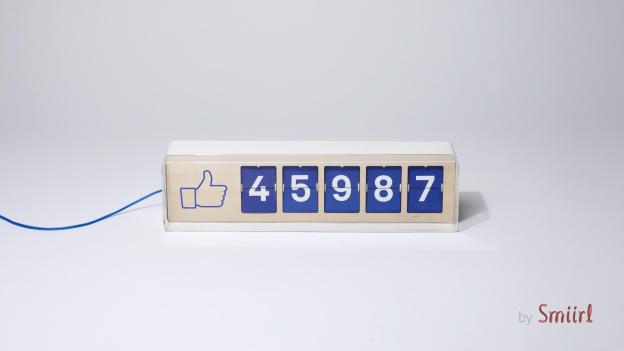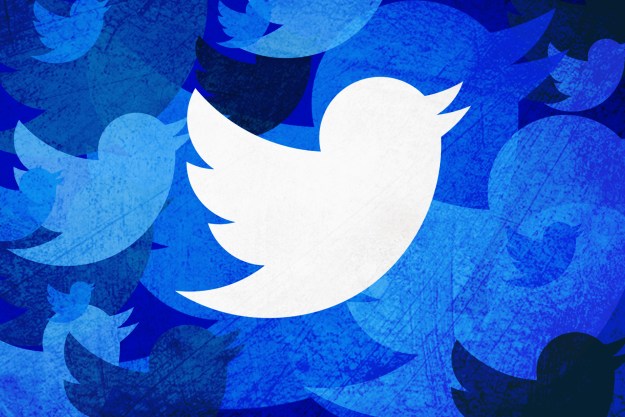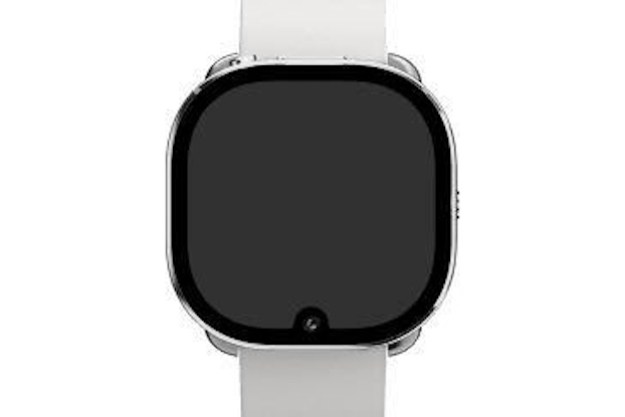 “Fliike” sounds like the Norwegian word for a bicycle made of forks, so you may be disappointed to find out that it’s actually the name of a Facebook “like” counter that businesses can display to show off how popular they are on the social network.
“Fliike” sounds like the Norwegian word for a bicycle made of forks, so you may be disappointed to find out that it’s actually the name of a Facebook “like” counter that businesses can display to show off how popular they are on the social network.
Created by French start-up Smiirl, the Fliike is now available for pre-order on their website, and it offers something that many stores may find intriguing: A way to showcase a digital presence in a tangible, attention-grabbing way. It’s a physical counter that goes up to 100,000 though if you have more likes than that you can custom order a special version (you popular business owner, you). They’re starting at a promotional price of 300 Euros (though regular price will be 400) and they’re large, mechanical counters that use Wi-Fi to connect to Facebook and monitor likes, flipping numbers whenever a new digital fan is born. When you put the counter on your bar or wherever else you want to display it, you can use a laptop or other device to hook up to Smiirl’s Wi-Fi, which will appear once the counter is connected to a device. Then you log on to the Wi-Fi, go to Smiirl’s website, and follow the directions to link your Facebook account to the physical counter.
CEO Gauthier Nadaud says the fact that the ticker is in a public place turns the once lonely act of monitoring social media into a communal experience. “We believe that a ‘Yeah! We’ve got 1,000 fans on Facebook!’ is way more powerful if it’s live in the bar than alone on your phone or computer,” he says.
Of course, you could argue that if someone is already in a store looking eagerly at the counter, they’re probably a customer, so it wouldn’t really matter if they know about the store’s Facebook page, since, ya know, the store already won their business. Or what if ‘likes’ started going down? That’s certainly depressing.
But Facebook “likes” are important to businesses and organizations. Just ask the State Department – it spent a whopping $630,000 on Facebook “likes” in the past two years to generate interest. Why the State Department needs to have so many Facebook “likes” we’re unsure, but there you have it. And you’d think that businesses that actually need to attract customers and get people to regularly buy their products would be even more invested in Facebook “likes,” since people who like their pages will get to see content they put up, basically turning Facebook into an ad channel.
Now, most businesses focused on getting more Facebook “likes” do it the old fashioned way – by buying them. But Fliike offers a way to get “likes” the even more old fashioned way – by getting people who frequent your business to voluntarily “like” your page after they experience the excitement of watching a like-counter in action and decide they must contribute. Maybe that’s not exactly old-fashioned, but it’s the way that Smiirl envisions people behaving. We’d reserve a healthy amount of skepticism about Fliike’s ROI, but one thing the counter does demonstrate is the real world crossover of Facebook “things.” You’ve heard of the Internet of things? Well that’s quickly applying to Facebook.
Nadaud has big plans for the company. “We are focusing on Facebook right now, but of course Smiirl want to go further than that. Our dream is to make different objects for every social network/digital service,” he says. “We also have ideas regarding version 2 of Fliike with more features and maybe services implemented.”
Editors' Recommendations
- How to set your Facebook Feed to show most recent posts
- How to get your share of Facebook’s $750M settlement
- Facebook’s new controls offer more customization of your Feed
- You can now use the Add Yours sticker on Reels for Facebook and Instagram
- Your Facebook account could get multiple profiles for different interests



